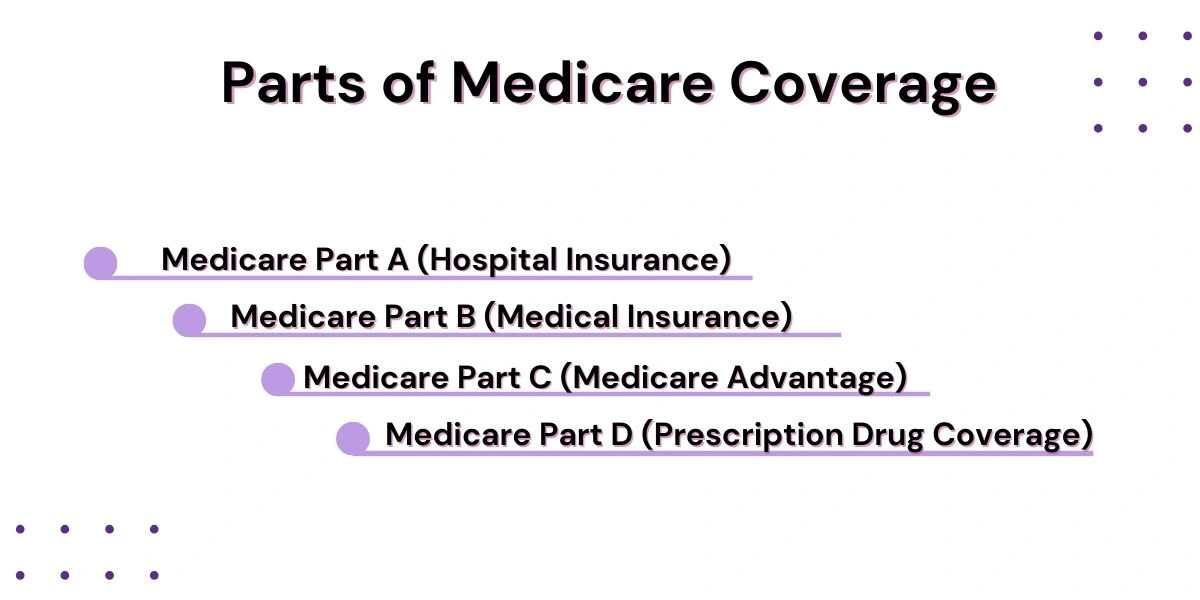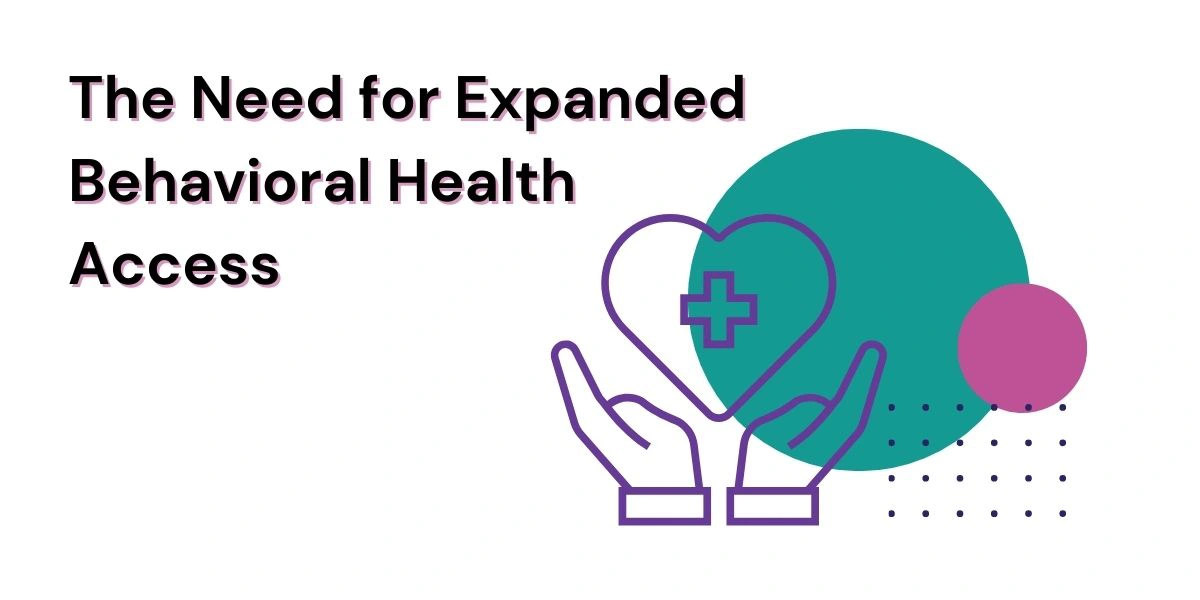Blog

Medicare provides essential healthcare coverage for millions of Americans, including comprehensive behavioral health services. With an increasing awareness of mental health conditions and substance use disorders, understanding what Medicare covers in behavioral health is crucial for beneficiaries seeking care. In this article, we will explore the extent of Medicare’s behavioral health coverage, what services are included, limitations, and the importance of this coverage for seniors and individuals with disabilities.
Understanding Medicare’s Coverage for Behavioral Health
Behavioral health services encompass mental health and substance use disorder treatments. According to the National Institute of Mental Health (NIMH), nearly 58 million American adults experienced mental illness in 2021, highlighting the urgent need for accessible and affordable treatment options. Medicare plays a crucial role in ensuring that beneficiaries can access necessary mental health care without significant financial burden.
Medicare is divided into different parts, and each covers specific behavioral health services:
- Medicare Part A (Hospital Insurance) covers inpatient behavioral health services, including psychiatric hospital stays and substance use disorder treatment.
- Medicare Part B (Medical Insurance) covers outpatient mental health services, including therapy, counseling, and psychiatric evaluations.
- Medicare Part C (Medicare Advantage) offers additional coverage, including prescription drugs and expanded mental health services, depending on the plan.
- Medicare Part D (Prescription Drug Coverage) covers medications used to treat mental health and substance use disorders.

Inpatient Behavioral Health Coverage Under Medicare
Medicare Part A provides coverage for inpatient hospital stays, including psychiatric hospitals and general hospitals that offer mental health services. Beneficiaries can receive up to 190 days of inpatient care in a psychiatric hospital during their lifetime, in addition to coverage for general hospital stays for mental health needs.
Cost Considerations
Medicare requires beneficiaries to pay a deductible of $1,632 (2024) per benefit period. For hospital stays beyond 60 days, daily coinsurance applies. Once lifetime reserve days are exhausted, the patient is responsible for the full cost.
Eligibility and Access
To qualify for inpatient behavioral health care under Medicare, a doctor must certify that inpatient treatment is medically necessary. Beneficiaries must receive care from a facility that accepts Medicare payments, and in some cases, prior authorization may be required. Additionally, while Medicare covers inpatient psychiatric care, not all hospitals provide these services, creating accessibility challenges in some regions.
Outpatient Mental Health Coverage Under Medicare
Medicare Part B covers a wide range of outpatient mental health services, including therapy, counseling, and psychiatric evaluations. Many beneficiaries rely on outpatient care for ongoing treatment of anxiety, depression, PTSD, and other conditions.
What’s Covered?
Services covered under Part B include therapy, psychiatric evaluations, medication management, and telehealth services for behavioral health. Expanded telehealth access under the CARES Act has improved access to these services.
Cost Considerations
Beneficiaries must meet an annual deductible of $240 (2024) and pay 20% coinsurance after the deductible is met. Typically, therapy and counseling services are covered at 80% of the Medicare-approved amount.
Accessing Outpatient Behavioral Health Services
Medicare beneficiaries seeking outpatient mental health treatment must find providers who accept Medicare. However, due to reimbursement rates, not all therapists and psychiatrists accept Medicare, limiting access to care. A growing trend in telehealth services has helped bridge this gap by making behavioral health services more accessible, particularly in rural areas.
Medicare Part D and Prescription Drug Coverage
Medicare Part D provides coverage for essential behavioral health medications, including antidepressants, mood stabilizers, and medication-assisted treatment (MAT) for substance use disorders. Coverage and costs vary by plan, and low-income subsidy programs are available to help reduce costs.
Prescription Drug Costs
The cost of prescription drugs under Medicare Part D depends on the plan’s formulary, which lists covered medications. Some plans may require step therapy or prior authorization before covering certain mental health medications. Beneficiaries should review their plan’s formulary annually to ensure their medications remain covered.
Medicare and Substance Use Disorder Treatment
Medicare covers detoxification services, outpatient therapy, medication-assisted treatment (MAT), and peer support services in some Medicare Advantage plans. According to SAMHSA, over 1 million Medicare beneficiaries have a diagnosed substance use disorder.
Types of Substance Use Disorder Treatment Covered
Medicare provides coverage for various levels of care, including inpatient detoxification, intensive outpatient programs (IOPs), and medication-assisted treatment for opioid and alcohol use disorders. Some Medicare Advantage plans may offer additional benefits, such as peer recovery coaching and transportation to treatment facilities.
Medicare Advantage Plans and Expanded Behavioral Health Coverage
Medicare Advantage (Part C) plans often provide additional behavioral health benefits, such as expanded telehealth access, integrated mental health programs, and lower out-of-pocket costs for therapy and counseling.
Comparing Original Medicare and Medicare Advantage for Behavioral Health
While Original Medicare covers many behavioral health services, Medicare Advantage plans may offer expanded benefits, such as reduced copays, enhanced access to specialists, and coverage for additional treatments like acupuncture and holistic therapy. However, these plans operate within provider networks, requiring beneficiaries to confirm their preferred providers accept their plan.
Challenges in Medicare Behavioral Health Coverage
Despite extensive coverage, Medicare has limitations. The 190-day lifetime limit on psychiatric hospital stays, limited participation of mental health providers in Medicare, high out-of-pocket costs, and lack of coverage for alternative therapies can pose barriers to care.
Provider Shortages
One of the biggest challenges Medicare beneficiaries face is finding providers who accept Medicare. Many psychiatrists and therapists choose not to accept Medicare due to lower reimbursement rates compared to private insurance. This has led to shortages of mental health professionals willing to treat Medicare patients, particularly in rural areas.
High Out-of-Pocket Costs
Although Medicare covers behavioral health services, beneficiaries often face high out-of-pocket costs, particularly for extended inpatient care or medications not covered under their plan. Copayments and deductibles can add up quickly, making it difficult for some individuals to afford necessary care.

The Need for Expanded Behavioral Health Access
Behavioral health services are crucial for improving overall well-being among Medicare beneficiaries. Studies show that untreated mental health conditions can worsen physical health outcomes and increase healthcare costs. According to KFF, nearly 30% of Medicare spending is associated with beneficiaries who have mental health or substance use disorders. Expanding behavioral health access could lead to better patient outcomes and reduced costs.
Policy Changes and Future Improvements
With rising demand for behavioral health services, policymakers are considering changes to expand Medicare’s mental health coverage. Potential improvements include eliminating the 190-day limit on inpatient psychiatric care, increasing reimbursement rates for mental health providers, and expanding telehealth services beyond the COVID-19 pandemic.
For those seeking additional behavioral health benefits, exploring Medicare Advantage plans or supplemental insurance can help bridge gaps in coverage. As awareness of mental health continues to grow, policymakers may further enhance Medicare’s behavioral health services to meet the increasing demand. If you need assistance navigating Medicare behavioral health coverage, Hansei Solutions can provide expert guidance and support to help you maximize your benefits.

Ready to focus on providing healthcare? Let us lighten your load.
We’re here to address your pain points and create growth opportunities for your organization. We’re passionate about what we do, and it shows in every interaction. Learn what makes us tick and schedule a demo today.